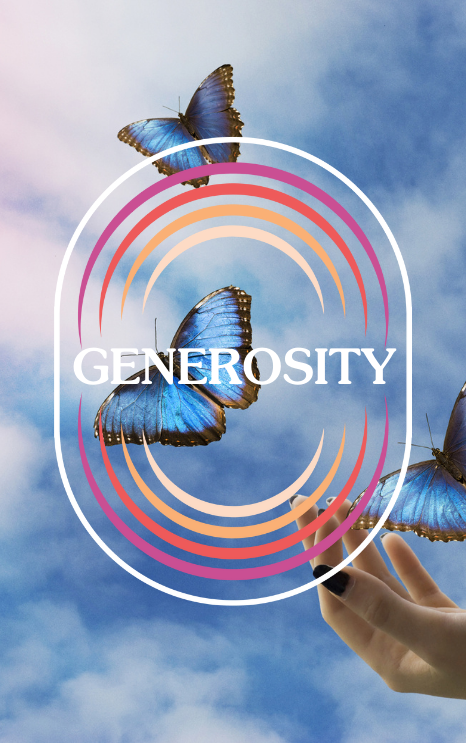Generosity, a concept extensively embedded within the fabric of various philosophical and spiritual traditions, often eludes a singular definition. The teachings of the Bahá’í Faith illuminate the multifaceted nature of generosity, encouraging individuals to engage with it both pragmatically and spiritually. The dialogue surrounding generosity, as highlighted in conversations such as those led by Lori Noguchi, poses a provocative inquiry: How does reframing our understanding of generosity transform our interactions and societal structures? This exploration seeks to delve into this dialogue and confront the challenges inherent in embodying true generosity.
To commence, it is essential to establish an expansive definition of generosity that transcends mere material giving. Traditionally, generosity conjures images of financial donations or gifting tangible items. However, within the Bahá’í paradigm, it extends poignantly to the investment of time, attention, and love into the upliftment of others. This comprehensive view incorporates emotional support and acts of kindness, fostering a holistic approach to relationships. By embracing this broader definition, individuals may find a more profound connection to the essence of generosity—one that binds the giver and receiver in a mutually enriching relationship.
In the Bahá’í context, all human beings are perceived as part of a unified whole. This interconnectedness is one of the core principles that inform the Bahá’í view of generosity. Hence, reframing the act of giving invites us to consider the ramifications of our generosity on communal growth and social cohesion. It provokes a reflection on the deeper motivations behind our actions. Are we giving to fulfill an obligation or to ignite a transformational process within our communities? To foster a genuine culture of generosity, one must transcend transactional encounters and cultivate relationships rooted in trust, compassion, and mutual respect.
As discussions around generosity deepen, they often reveal cultural biases that can impede the expression of authentic generosity. For instance, societal norms can create barriers by establishing parameters around what is deemed an acceptable form of giving. These norms can foster a reluctance to express generosity unless it conforms to a specific model: often, public or materially significant acts of giving are valorized over quieter, more intimate gestures. Herein lies a challenge: how does one navigate these societal expectations while remaining true to the Bahá’í teachings on generosity? The challenge becomes particularly pronounced in communities that prioritize social status or material wealth, leaving those who wish to contribute outside traditional avenues feeling marginalized.
Moreover, the concept of reciprocity frequently interlaces with the act of giving in practical realms. In many cultures, generosity is viewed through the lens of exchange—where the giver expects something in return. This reciprocal expectation can cloud the purity of intent associated with genuine giving. Bahá’í teachings advocate for selfless acts, wherein the expectation of reciprocity diminishes the intrinsic value of the act itself. Thus, one must grapple with the applicability of such a principle in daily life. Can one truly act without the latent desire for acknowledgement or return? The very discomfort that arises from exploring this question can lead to profound personal growth and a reevaluation of one’s motives.
The role of generosity extends beyond the individual realm—it envelopes the collective sphere, invoking notions of community engagement and social responsibility. In the contemporary world, characterized by polarization and strife, the practice of generosity becomes paramount in fostering harmony and understanding among diverse groups. By reframing generosity through the lens of social action, individuals can harness their capacity to effect change. Initiatives centered around collective well-being rather than personal gain underscore the Bahá’í perspective, amplifying the need for sustained commitment to community upliftment.
Yet, this social responsibility can pose another challenge: the potential for burnout. Engaging in numerous charitable or community-oriented endeavors may lead to exhaustion if not approached with balance. This calls for introspection regarding personal limits and boundaries. The Bahá’í teachings advocate for moderation in all aspects of life—generosity included. Hence, finding a sustainable rhythm between giving and self-care is imperative. Individuals must navigate this delicate balance, ensuring that their wellspring of generosity does not deplete their own emotional or physical resources.
Furthermore, the digital age presents both opportunities and complications in the realm of generosity. The omnipresence of social media platforms allows for rapid dissemination of appeals for help, yet it also instigates a detachment between the giver and the cause. This dichotomy raises questions about the authenticity of our generosity in an increasingly virtual landscape. Does the act of clicking “donate” translate to the same depth of understanding and commitment as a face-to-face interaction? As generosity finds new expressions in a fast-paced world, one must critically assess how technology both enhances and potentially dilutes the spirit of giving.
In conclusion, the conversation surrounding generosity and its reframing, as exemplified by the insights of Lori Noguchi, provokes a series of reflective challenges. Engaging with the complexities of what it means to be generous—how we can navigate societal expectations, the nature of reciprocity, and the balance between personal wellbeing and community responsibility—ultimately enriches both our understanding and practice of generosity. By centering our actions in the framework provided by Bahá’í teachings, we open avenues for deeper, more meaningful connections and contribute actively to the fabric of humanity. The path forward invites each of us to explore the playful, yet profound, question: How might reframing generosity serve as a catalyst for transformative action within our lives and communities?
